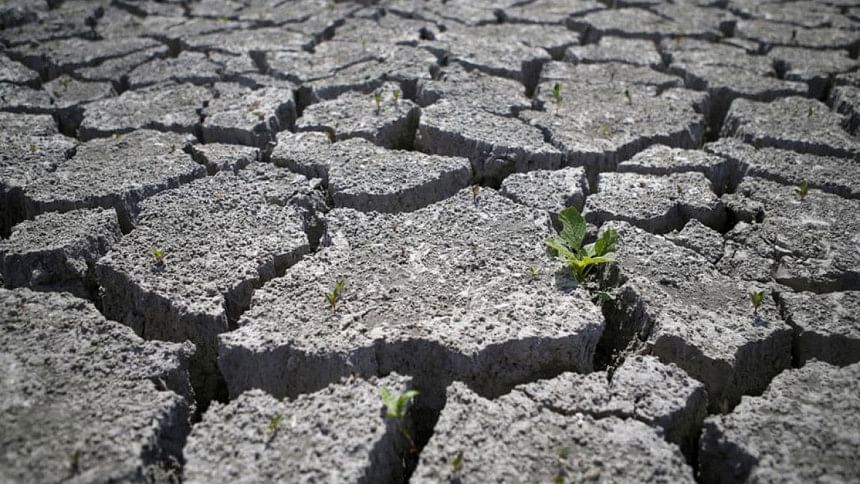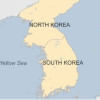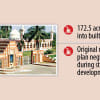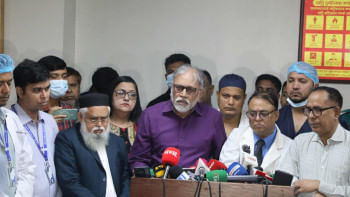Dying soil in need of care and justice

Civilisation began from the womb of soil, has been nourished by the ingredients in soil, and has sustained itself using the strength and endurance of soil. The fertile Gangetic alluvial soil of Bangladesh bears the legacy of historical triumph, cultural pride, and agricultural revolution. Sadly, we tend to be inconsiderate, careless and cruel towards this life-giving soil.
This year, the theme of World Soil Day is "Soil and Water: Source of Life." For Bangladesh, the observance of this day bears special significance as our dying soil cries for action from us to help it survive.
The World Soil Day campaign aims to raise awareness about the significance of the relationship between soil and water in achieving sustainable and resilient agrifood systems. Bangladesh's soil is one of the most productive types in the world, being able to nurture two to three crops in one year. But exhausted due to intensive farming activities, environmental stress, and development activities, it needs care to recuperate. If soil dies, if the land is lost, if the crop field is grabbed, who will sustain our lives? Soil is a living system that takes thousands of years to form, but the cruelty of civilisation can kill it within an hour. The survival and sustenance of our beloved Earth largely depend on the sustainable link between soil and water. This symbiotic relationship is the foundation of our agricultural systems and livelihoods.
In the face of climate change and inconsiderate human activities, our soil is being degraded and excessive pressure is being put on our water resources. Erosion disrupts the natural balance, reducing water infiltration and availability for all forms of life. Sustainable soil management practices—such as minimum tillage, crop rotation, organic matter addition, and cover cropping—improve soil health, reduce erosion and pollution, and enhance water infiltration and storage. These practices also preserve the soil's biodiversity, improve fertility, and contribute to carbon sequestration, thus playing a crucial role in the fight against climate change. Rain-fed agriculture systems, which account for 80 percent of croplands and contribute to 60 percent of global food production, rely heavily on effective soil moisture management practices.
Soils enriched with organic matter play a vital role in maintaining hydrological balance. Furthermore, soil acts as a carbon sink by sequestering carbon from the atmosphere and contributing to climate change adaptation and mitigation efforts. Unwise use of soil and water erodes soil and deteriorates soil biodiversity, soil fertility, and water quality and quantity.
We wax poetic about our supposed love for the soil frequently. However, we fail to show this love in our actions towards the soil. We fail to realise that the soil has life, too.
On World Soil Day, rallies, meetings, and seminars are held, and special supplements are published in newspapers. But these never bring any tangible change in our attitude towards the soil, and we continue to pollute the soil with the wastes of civilisation and technology. By extracting underground water, we make soil fragile and break up its physical structure.
According to the World Bank collection of development indicators, arable land in Bangladesh was reported to be at 62.3 percent in 2021. Bangladesh's land-use intensity is the highest in the world and it ranks first in the world in terms of intensive farming. Increasing agricultural production and urbanisation are putting more pressure on the land. We are losing our valuable crop fields to development. To fuel industrialisation and urbanisation, the three-crop agricultural land keeps falling into the hands of land grabbers.
Our priyo dharitri (beloved earth) is increasingly turning blue due to the slow poisoning by the commercial plans of corporate development, globalisation, and capitalistic aggressions. Which of us has ever seen the soil's diagnostic report? What is the level of soil acidity, microorganisms, and salinity? What are the tolerable levels of heavy metals, pesticides and nuclear waste in soil? The current soil health map presents a sobering and depressing picture of soil's levels of organic matter, phosphorus, potassium, heavy metals, salinity, acidity, erosion and other nutrients. If we keep killing our soil, someday soon, it will lead to the end of our existence.
Sustainable land management in Bangladesh is crucial due to the country's density of population, vulnerability to climate change, and heavy reliance on agriculture. This would also align with the United Nations' Sustainable Development Goals, particularly Goal 2 (Zero Hunger), Goal 13 (Climate Action), and Goal 15 (Life on Land). Bangladesh should take strides when it comes to sustainable land management through policies, technologies, and community involvement. With collaborative efforts and renewed commitment, World Soil Day aims to inspire individuals, organisations, and governments to prioritise and safeguard this most precious natural resource for all generations. Let all of us do our best to deliver care and justice to the soil of this land.
Dr Md Roushon Jamal is an agriculturist and civil servant. He can be reached at [email protected].
Views expressed in this article are the author's own.
Follow The Daily Star Opinion on Facebook for the latest opinions, commentaries and analyses by experts and professionals. To contribute your article or letter to The Daily Star Opinion, see our guidelines for submission.

 For all latest news, follow The Daily Star's Google News channel.
For all latest news, follow The Daily Star's Google News channel. 










Comments